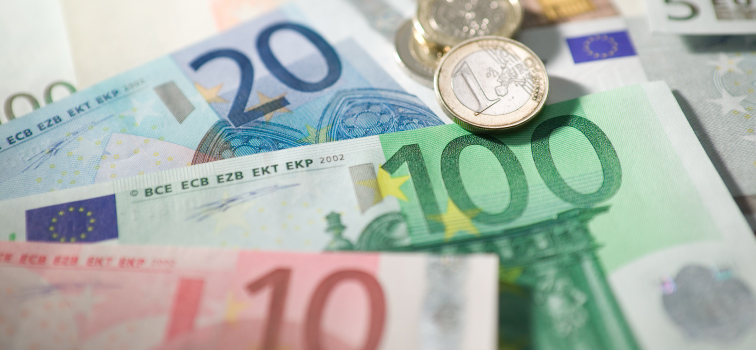Eurosystem Cash Strategy

The Eurosystem cash strategy aims to ensure that cash remains widely available and accepted as both a means of payment and a store of value. Cash is an important part of your freedom to choose how to pay. This is essential for the financial inclusion of all groups in society.
Euro banknotes and coins are legal tender in the euro area, and cash is the only form of public money to which everyone can have direct access. The ECB and the national central banks – also known as the Eurosystem – have a fundamental responsibility, together with the banking sector, to ensure the smooth supply of cash and facilitate the use of cash in payments by people and businesses.
Five Ways the Eurosystem Protects the Future of Cash
1. Ensuring the availability of euro cash
The Eurosystem works to ensure that euro banknotes and coins are available to the public at all times. The national central banks offer free-of-charge cash services throughout their countries and they also work to make the cash cycle as cost efficient as possible. The Eurosystem also takes into account the needs of international markets since between 30% and 50% of euro banknotes circulate outside the euro area. And if a digital euro were to be issued in future, it would exist alongside cash.
2. Supporting access to cash services for everyone
The Eurosystem wants people and businesses to have access to their money, whatever their preferences and payment needs. For this to happen, banks need to provide adequate cash services, including cash withdrawals that are free or incur only a reasonable fee. The Eurosystem also supports retailers that provide complementary cash services such as “cash back” or facilitate limited cash withdrawals and deposits. The Eurosystem helps banks to deal with sudden surges in demand for banknotes and make sure that cash can be used as a fall-back means of payment in case electronic payments are temporarily unavailable.
3. Supporting cash acceptance everywhere
Most people in the euro area still prefer to use cash for retail payments. Cash acceptance is therefore a vital part of the payment system and is also in line with its status as legal tender. It allows consumers the freedom to choose how to pay and means that people who do not have access to electronic payments are not disadvantaged.
In Ireland, businesses such as shops and restaurants cannot refuse cash unless both they and the customer have already agreed on another way of paying (for example, if a retailer displays a clearly visible sign indicating that they do not accept cash that the customer should see before transacting with the retailer). Where a business places no restrictions on the means of payment it is prepared to accept, it must accept legal tender when offered by a customer to settle a debt that has arisen.
4. Developing innovative and secure euro banknotes
Euro banknotes are protected by the latest and most effective technologies to make them highly resistant to counterfeiting and easy to authenticate. The Eurosystem ensures the authenticity and high quality of euro banknotes in circulation and enforce strict standards for how banks and professional cash handlers check and authenticate them. The European Commission’s PERICLES programme also encourages the development of security features for potential future upgrades of the current euro coin denominations. Last but not least, the Eurosystem aims for the design of euro banknotes to be one that Europeans can identify with.
5. Keeping banknotes safe and sustainable
The Eurosystem makes sure that banknotes are safe to use by researching the potential impact of euro banknote production and circulation on public health and carrying out scientific examination and testing. The Eurosystem also looks at the environmental footprint of banknotes to identify opportunities to reduce their environmental impact via new products and processes. This ensures that euro banknotes and their production processes become as sustainable, green and environmentally friendly as possible.
See also: